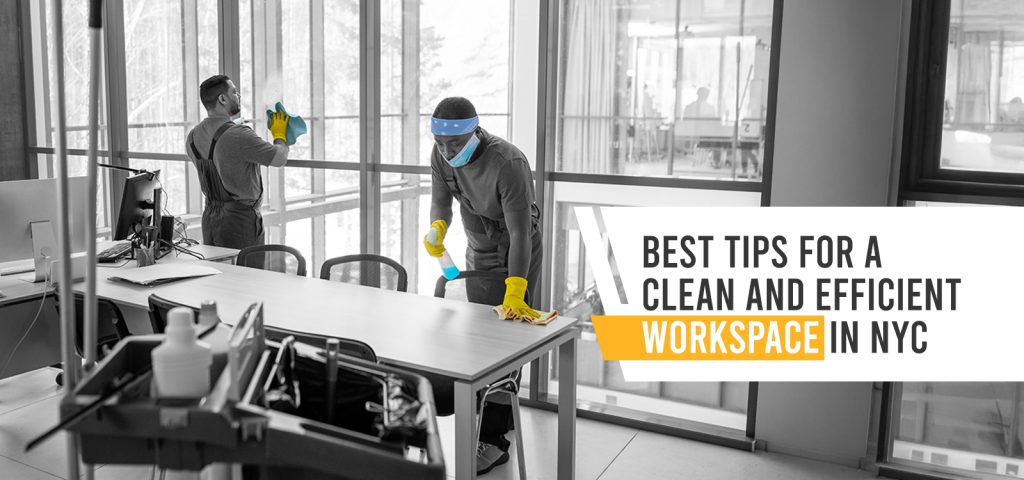The Relationship between Clutter and Productivity: How an Organized Space Can Enhance Your Performance

Understanding the Connection
In a fast-paced world, the constantly evolving demands of both personal and professional life can create overwhelming amounts of clutter. When our physical environment becomes disorganized, it not only disrupts our space but can also negatively impact our mental well-being and productivity. The way we manage our surroundings plays a significant role in our overall effectiveness. Evidence suggests that an organized environment can boost focus and improve efficiency in daily tasks, making it essential for maintaining balance in everyday life.
Key Insights into Clutter and Productivity
Research shows a clear link between clutter and our ability to perform effectively. Here are some crucial points to consider:
- Visual Distractions: Excess items in our surroundings can easily distract the mind, leading to decreased concentration. For example, a cluttered desk filled with paperwork, snack wrappers, and other items can divert attention from ongoing tasks, making it harder to achieve goals.
- Stress Levels: A chaotic space often correlates with heightened anxiety and stress, hindering productivity. Studies have indicated that individuals who work in cluttered environments report feeling more overwhelmed and less in control of their tasks, which can lead to a negative spiral of procrastination and frustration.
- Time Management: Searching for misplaced items can waste valuable time that could be better spent on completing tasks. Research suggests that the average person spends up to 55 minutes a day searching for various items like keys, documents, or tools; that’s nearly four days a year! This lost time could have been invested in more meaningful work or personal development.
Moreover, an organized space is not just about aesthetics; it’s about maximizing functionality. For instance, utilizing storage solutions like labeled bins and efficient filing systems can streamline workflows. Creating an environment that promotes order can lead to enhanced performance and greater satisfaction in work and life.
Exploring the Benefits of Organization
By understanding how an organized space impacts our performance, individuals and organizations can take proactive steps to foster productivity. Research has shown that individuals who maintain a clean workspace are more inclined to be creative and better at problem-solving. Moreover, companies that promote a tidy environment often see improved employee morale and collaboration, which translates to higher productivity rates.
In the following sections, we will delve into effective strategies to declutter and organize your space. From the popular KonMari method to implementing the Pomodoro Technique in management tasks, there are myriad approaches to enhancing order and streamlining workflow. Each small change can contribute to a larger transformation, making a significant difference in both personal and professional realms. Ultimately, fostering an organized environment is a catalyst for success and well-being.

DISCOVER MORE: Click here to learn how a minimalist workspace boosts your productivity</p
The Impact of Clutter on Cognitive Function
In understanding the relationship between clutter and productivity, it’s essential to explore how our cognitive function is affected by our environment. Clutter doesn’t just occupy physical space; it occupies mental space as well. Studies by brain researchers have shown that the human brain has a limited capacity to process information. When our surroundings are cluttered, the brain must work harder to filter out distractions, leading to cognitive overload. This strain can result in decreased productivity and an inability to concentrate on tasks at hand.
The Neuroscience Behind Disorder
Research from the Princeton University Neuroscience Institute found that clutter can significantly affect our brain’s ability to focus. The study indicated that individuals working in tidy environments performed better on tasks that required focus and attention compared to those surrounded by clutter. This correlation suggests that a clean and organized workspace can serve as a catalyst for improved cognitive performance. Here are notable findings that further elaborate on how clutter affects our productivity:
- Increased Cortisol Levels: Cluttered environments have been connected to elevated levels of cortisol, the stress hormone, which can hinder our capacity to function effectively. Higher cortisol levels can significantly impact decision-making and problem-solving abilities.
- Impaired Decision Making: A disordered space can lead to indecisiveness and confusion. When faced with too many distractions or choices, individuals may find it difficult to make judgments and complete tasks efficiently.
- Reduced Motivation: A cluttered workspace often fosters feelings of overwhelm, leading to a lack of motivation. Individuals may be less inclined to start a project or engage in tasks when faced with disorder, creating a cycle of procrastination.
However, the benefits of an organized space extend beyond merely reducing stress levels. A study published in the journal “Psychological Science” found that individuals who worked in organized and tidy environments were more likely to engage in creative thinking and exhibit greater satisfaction in their personal and professional lives. This evidence supports the notion that an organized setting can enhance not only productivity but also innovation and fulfillment.
Harnessing the Power of Organization
Realizing the significant impact of clutter on productivity encourages individuals to adopt strategies for keeping their spaces organized. Simple tactics such as decluttering regularly, applying minimalist principles, and creating designated spaces for essential items can lead to a remarkable improvement in performance. Furthermore, organizations can implement policies that promote a culture of cleanliness and organization, encouraging employees to take ownership of their workspaces. This collective effort can foster a reliable atmosphere conducive to collaboration and creativity.
As we delve further into actionable strategies for organization, it’s crucial to remember that the path to productivity begins with a clear and orderly environment. Stay tuned to discover effective methods that can transform your chaotic space into a sanctuary of focus and productivity.
| Category | Explanation |
|---|---|
| Mental Clarity | An organized space reduces distractions and promotes focus. |
| Efficiency | Easy access to tools and resources enhances your work efficiency. |
| Motivation | A tidy space can significantly improve your motivation to work. |
| Stress Reduction | Organized environments promote calmness and reduce stress levels. |
The connection between clutter and productivity is often underestimated, yet it plays a crucial role in shaping how efficiently we work. Clutter can feel overwhelming, leading to distractions that hinder mental clarity. In contrast, an organized space not only minimizes visual distractions but also enhances cognitive processes. This clarity is essential for effective decision-making and task execution.Moreover, organization can significantly boost efficiency. When everything is in its proper place, tasks can be completed swiftly without the need for constant searching for items. Employees often report higher levels of motivation when they are surrounded by a tidy environment, as it creates a conducive atmosphere for productivity. Stress reduction is another critical benefit associated with organized spaces; chaos breeds anxiety, while order fosters serenity. Understanding this relationship can compel individuals and organizations alike to reassess their environments, ultimately leading to higher productivity levels.
DON’T MISS OUT: Click here to learn how minimalism can enhance your time management skills
The Benefits of an Organized Environment
Having established the detrimental effects of clutter on cognitive function, it is equally important to examine the multitude of benefits that an organized space can provide regarding productivity. A well-structured environment acts as a foundation for easier, more efficient workflows, allowing individuals to allocate their cognitive resources effectively. This enhances not only personal performance but also team dynamics in collaborative settings.
Increased Efficiency and Time Saving
One of the most significant advantages of an organized workspace is the increase in efficiency. When items are systematically arranged, finding essential tools and documents becomes a quick and seamless process. According to a survey by the National Association of Professional Organizers, an estimated 40% of people feel overwhelmed by clutter, which often leads to wasted time. By implementing basic organizing principles, such as categorizing items and maintaining a regular decluttering schedule, individuals can recoup lost hours spent searching for misplaced items. For instance, having a dedicated file system or digital organization can significantly reduce time spent on administrative tasks, allowing you to redirect that energy toward value-added activities.
Enhancing Creativity and Innovation
Furthermore, a clean and organized workspace can have profound implications for creativity and innovation. A study conducted by researchers at UCLA showed that more organized spaces promote greater cognitive function, creativity, and overall mental clarity. When individuals work in an uncluttered environment, they are less likely to feel overwhelmed and can instead focus on brainstorming new ideas and solutions. When creativity flows, it can lead to inventive strategies that elevate overall performance. For example, tech companies like Google and Facebook invest in creating spacious, organized work areas because they understand that a stimulating environment can encourage innovative thinking among their employees.
Fostering Positive Mental Health
It is imperative to recognize that clutter not only impacts productivity but also mental health. Living and working amidst disorder can contribute to feelings of anxiety and helplessness. Conversely, a well-organized space fosters a sense of control and stability. A report from the American Psychological Association highlights that individuals who maintain organized environments tend to experience lower levels of stress and enhanced mood, which correlate directly with productivity levels. By creating a peaceful, pleasant space, workers can stay focused and fully engaged in their tasks without the mental distraction of visual chaos.
Embracing Digital Organization
In the digital age, organization extends beyond physical spaces. Maintaining an orderly digital workspace, such as managing emails and files, is equally crucial. A study by the University of Southern California found that employees who regularly organize their digital files and clear their inboxes report higher productivity rates. By utilizing tools such as digital task management applications or cloud storage that categorize files efficiently, individuals can streamline their workflows and reduce mental clutter arising from technology. This integration of both physical and digital organization is essential for achieving maximum productivity in an increasingly hybrid work environment.
Clearly, an organized environment serves as the backbone of improved productivity. Beyond just maintaining a clean desk, various methods can be employed to foster an atmosphere ripe for efficiency and creativity. As we explore actionable strategies to maintain an organized space, we unravel the potential for enhanced performance, creativity, and satisfaction that await in such an environment.
DISCOVER MORE: Click here to unlock the secrets of simplicity
Conclusion
In closing, the relationship between clutter and productivity is a critical area of consideration for individuals seeking to enhance their performance. Evidence supporting the notion that a well-organized space serves as a catalyst for increased efficiency, creativity, and mental well-being is overwhelming. By reducing distractions and facilitating clearer thought processes, an organized environment not only boosts individual output but also contributes to healthier workplace dynamics.
As we navigate through our increasingly demanding professional landscapes, the benefits of a tidy workspace can no longer be overlooked. By embracing practical methods such as systematic decluttering and digital organization, individuals can reclaim precious time and direct their energy toward more productive endeavors. The positive mental health implications highlighted in numerous studies reveal that an organized environment promotes a sense of control and stability, which are vital for maintaining motivation and focus.
Ultimately, if you aspire to elevate your performance, begin by reassessing your workspace and integrating foundational organizing principles. From corporate giants like Google to freelancers working from home, all can unlock new levels of productivity by prioritizing organization. Thus, as we continually strive for excellence in our tasks, let us remember that a simple shift towards an organized space might be the transformative key to unlocking our full potential.


